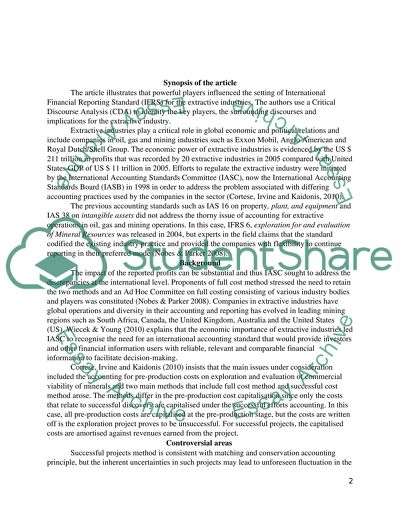Accounting Regulation of Extractive Industries Essay. Retrieved from https://studentshare.org/finance-accounting/1651067-accounting-regulation-of-extractive-industries
Accounting Regulation of Extractive Industries Essay. https://studentshare.org/finance-accounting/1651067-accounting-regulation-of-extractive-industries.


